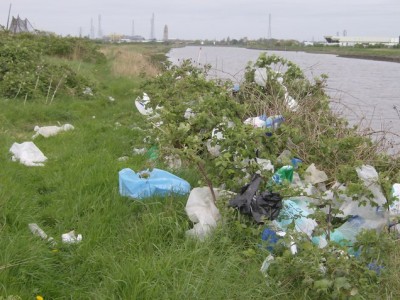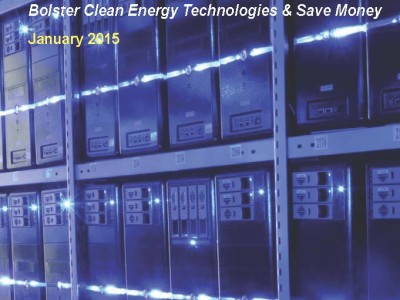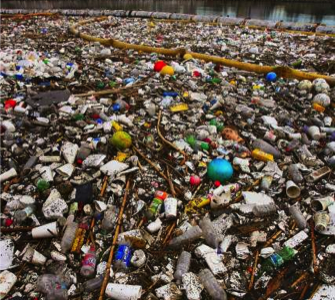Regulatory Policy
Econ101, Ideological Blinders, and the New Head of CBO
There are troubling indications that Keith Hall lets ideology blind him to basic economics.
Last week, in a post about the employment effect of regulations, I mentioned briefly that the new Director of the Congressional Budget Office, Keith Hall, had endorsed some questionable views on the subject. A reader pointed me toward an additional writing that has done a lot to escalate my concerns. There are disturbing signs about both Hall’s ideological bias …
Continue reading “Econ101, Ideological Blinders, and the New Head of CBO”
CONTINUE READINGAccounting For Job Loss
The consequences of doing so may not be what you’d expect.
The Republican’s choice for head of the CBO, Keith Hall, spent some time at a libertarian think tank reportedly funded by the Koch brothers, where he wrote about the effect of regulation on employment. Hall argued that regulations cause unemployment (include indirect effects because of price changes), and that the costs of unemployment should be included …
Continue reading “Accounting For Job Loss”
CONTINUE READINGReferendum Politics: California’s Pioneering Plastic Bag Ban on Hold
Out-of-State Bag Manufacturers Succeed in Qualifying Referendum Measure for 2016 Ballot
California’s recently-legislated ban on disposable plastic bans–the first in the nation–will not take effect on July 1, 2015 as the new law mandates. That’s because industry opponents of the legislation have qualified for the November 2016 election a referendum measure that seeks to repeal the new law. Last fall I wrote on this site about …
Continue reading “Referendum Politics: California’s Pioneering Plastic Bag Ban on Hold”
CONTINUE READINGAccelerating Cost-Effective Green Stormwater Infrastructure: Learning from Local Implementation
A new Berkeley Law report
California decision makers focused on responding to the current drought might question whether stormwater deserves a slice of their attention right now. Although it might be tempting to relegate stormwater planning, management decisions, and infrastructure improvements to a back burner until drought concerns cool off, doing so would be counterproductive. Below, I explain why stormwater management is relevant …
CONTINUE READINGClean Energy Data Legislative Briefing In Sacramento
Lunch event will be held on Tuesday, February 24th
UC Berkeley and UCLA Schools of Law will be hosting a free legislative lunch briefing next Tuesday on expanding access in California to clean energy data, the subject of the Knowledge is Power report that the law schools released last month. The energy data could include improved customer access to long-term usage patterns, utility statistics …
Continue reading “Clean Energy Data Legislative Briefing In Sacramento”
CONTINUE READINGThe Dietary Supplement Scandal
There are 65,000 dietary supplements on the market, and almost half the population uses at least one of them. Americans spent $13 billion on dietary supplements last year, according to the Washington Post. There are disturbing indications that nearly all that money is wasted — or to put it more bluntly, that the industry is essentially …
Continue reading “The Dietary Supplement Scandal”
CONTINUE READINGCelebrating Four Decades of Energy Innovation: The California Energy Commission at 40
How California & the Commission Launched Their Acclaimed Energy Policy–& the Challenges That Lie Ahead
This month marks the 40th anniversary of California’s landmark Warren-Alquist Act, which created the state Energy Commission and triggered a transformation of energy policy in California, across the U.S., and abroad. This week an impressive group of energy policymakers, political leaders, energy scholars and Energy Commission alumni gathered at events in Sacramento and at the U.C. Davis …
CONTINUE READINGCalifornia’s Water Law Symposium–A Law Student Success Story
Students From Six Northern California Law Schools Collaborate in a Big and Unconventional Way
The 11th Annual Water Law Symposium was held last weekend at Golden Gate University Law School in San Francisco. The event drew a standing-room-only crowd of water law scholars, practitioners and policymakers, who devoted the day to a thoughtful and lively examination of how California’s constitutional law doctrine of reasonable use affects all facets of …
Continue reading “California’s Water Law Symposium–A Law Student Success Story”
CONTINUE READINGSolar Tariff Wars Heat Up
States that have helped boost rooftop solar installations through so-called net metering policies are beginning to scale back their subsidies under pressure from utilities. As ClimateWire reported today (here’s the link but it’s behind a paid subscription wall), Hawaii’s largest utility has just proposed rolling back the state’s net metering policy, joining Arizona, California, …
Continue reading “Solar Tariff Wars Heat Up”
CONTINUE READINGZero Trash
Using the Clean Water Act to Control Marine Debris in California
This post is cross-posted on EcoPerspectives, the environmental law and policy blog of the Vermont Journal of Environmental Law. Let’s talk trash. Human-generated stuff that ends up in the ocean, termed “marine debris” or “marine trash,” presents a critical ocean and coastal management challenge. Trash can be found on coastlines and in seawater worldwide, from …
CONTINUE READING









